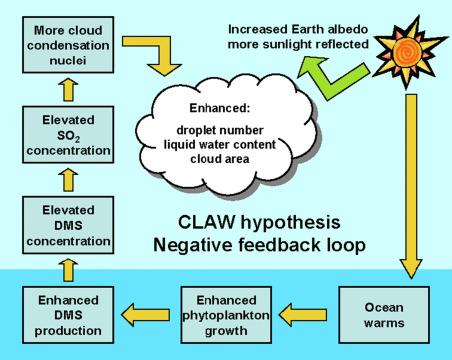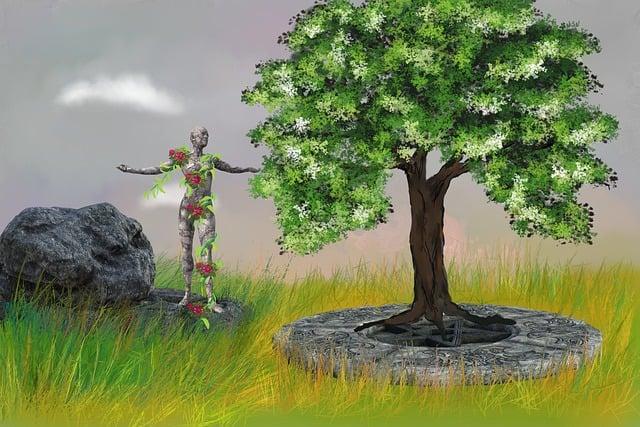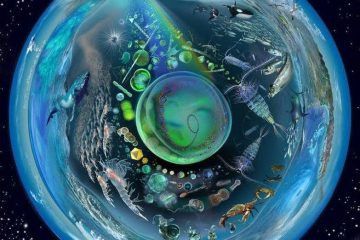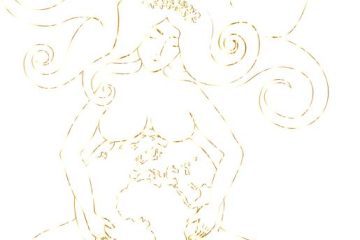Imagine a world where the Earth is not just a planet, but a living, breathing entity – a concept that has captivated minds and sparked curiosity for decades. Welcome to the realm of the Gaia hypothesis, a fascinating theory that views our planet as a self-regulating organism, delicately balancing life to sustain itself. In this article, we delve into the meaning behind the Gaia hypothesis, exploring its origins, implications, and the profound connection it unveils between Earth and all living beings. Join us on a journey to unravel the mysteries of this visionary concept that invites us to see our planet in a new light.
Table of Contents
- - Uncovering the Essence of the Gaia Hypothesis: A Deep Dive into Earth as a Living System
- – Exploring the Implications of the Gaia Hypothesis on Environmental Conservation and Sustainability
- – Implementing Gaia-Inspired Practices: Practical Steps Towards Holistic Environmental Stewardship
- Q&A
- To Conclude

– Uncovering the Essence of the Gaia Hypothesis: A Deep Dive into Earth as a Living System
The Gaia Hypothesis offers a captivating perspective on Earth as a dynamic, interconnected system that regulates its own environment to support life. Imagining our planet as a living entity can shift our perception of nature and our place within it. Here are some intriguing aspects to consider:
- **Self-Regulation:** Gaia proposes that Earth actively maintains conditions suitable for life, akin to a self-regulating organism.
- **Interconnectedness:** The hypothesis emphasizes the intricate web of relationships between living organisms and their environment, highlighting the interdependence of all life forms.
Delving deeper into the essence of the Gaia Hypothesis reveals a profound interconnectedness that echoes throughout the natural world. By embracing Earth as a living system, we may gain a deeper appreciation for the delicate balance and harmony that sustains life on our planet.
| Key Point | Insight |
|---|---|
| Self-Regulation | Earth’s ability to <a href="https://gaianation.net/gaia-hypothesis-james-lovelock-pdf/" title="gaia hypothesis james lovelock pdf”>maintain stable conditions through complex feedback mechanisms. |
| Homeostasis | The concept of Earth seeking balance and equilibrium to support life. |
- Exploring the Implications of the Gaia Hypothesis on Environmental Conservation and Sustainability
The Gaia Hypothesis, proposed by scientist James Lovelock, suggests that the Earth functions as a self-regulating system where all living organisms and their inorganic surroundings are closely integrated to form a single, complex system. This hypothesis portrays the Earth as a living organism itself, capable of regulating temperature, atmospheric content, and other environmental factors to sustain life. The implications of this theory on environmental conservation and sustainability are profound, leading to a reevaluation of how humans interact with and impact the planet.
Key Implications of the Gaia Hypothesis:
- Interconnectedness: Emphasizes the interconnected nature of all living and non-living components of the Earth.
- Holistic Approach: Encourages a holistic approach to environmental conservation, considering the planet as a unified entity.
- Sustainability: Highlights the importance of sustainable practices to maintain the balance and health of the Earth.
- Respect for Nature: Promotes a greater respect for nature and all its interconnected systems.
By understanding and embracing the Gaia Hypothesis, individuals and organizations can develop more effective strategies for environmental conservation and promote long-term sustainability. This paradigm shift challenges traditional views of the environment and underscores the importance of preserving the delicate balance that sustains life on Earth.
– Implementing Gaia-Inspired Practices: Practical Steps Towards Holistic Environmental Stewardship
Sure, here is the content for the post section:
When delving into the realm of the Gaia hypothesis, one can’t help but marvel at the interconnectedness of all living beings on our planet. Embracing this concept involves recognizing the intricate web of relationships between ecosystems and organisms, emphasizing the importance of fostering symbiotic interactions.
Practical steps towards embodying Gaia-inspired practices include:
- Regenerative Agriculture: Implementing techniques that promote soil health and biodiversity.
- Energy Conservation: Embracing renewable energy sources to reduce our carbon footprint.
- Community Engagement: Encouraging local collaboration to support sustainable initiatives.
Q&A
Q: What is the Gaia hypothesis, and why is it significant?
A: The Gaia hypothesis proposes that the Earth functions as a self-regulating organism to maintain the conditions necessary for life. This concept suggests that the planet’s biotic and abiotic components are interconnected and work together in a complex system. The significance of the Gaia hypothesis lies in challenging traditional views of Earth as a passive environment by portraying it as a living entity that actively sustains life.
Q: Who developed the Gaia hypothesis?
A: The Gaia hypothesis was developed by James Lovelock, a British scientist, and Lynn Margulis, an American biologist, in the 1970s. Lovelock, a prominent environmentalist and independent scientist, proposed the idea that the Earth behaves like a living organism with regulatory mechanisms to maintain life-sustaining conditions.
Q: How does the Gaia hypothesis relate to ecology and environmental science?
A: The Gaia hypothesis has profound implications for ecology and environmental science as it emphasizes the interconnectedness of all life forms and their environments. By viewing the Earth as a dynamic and self-regulating system, researchers can better understand the intricate relationships between organisms and their habitats, leading to insights on conservation, sustainability, and ecosystem management.
Q: Is the Gaia hypothesis widely accepted in the scientific community?
A: While the Gaia hypothesis has sparked considerable debate among scientists, it has gained recognition for its innovative perspective on the Earth as a living system. Some aspects of the hypothesis have been incorporated into scientific theories, especially in the field of Earth system science, where the focus is on understanding the planet as a complex and interconnected entity.
To Conclude
As we wrap up our exploration of the Gaia Hypothesis and its profound meaning, we are reminded of the intricate interconnectedness of our planet and all its inhabitants. Delving into the idea of Earth as a self-regulating organism opens our minds to a deeper understanding of nature’s balance and harmony. Whether you are a scientist, a philosopher, or simply a curious soul, pondering the Gaia Hypothesis invites us to reflect on our role in nurturing and preserving our fragile yet resilient home. Let us continue to marvel at the wonder of our planet and strive to cultivate a relationship of reverence and responsibility towards Gaia, the living Earth we call home.



0 Comments